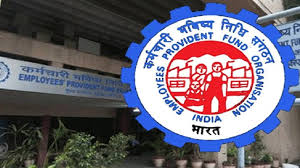The world’s second-largest grower of wheat imposed a ban on exports of the grain in May 2022, after searing temperatures trimmed output
The Union government is considering a cut in the import duty on wheat, which currently stands at 40%, along with “higher stock-holding limits” to ease prices of the staple, according to an official with knowledge of the matter.
Read More: India bans import of laptops, so can you now buy one abroad and bring it with you? Yes and no
A number of anti-inflation measures over the past several hasn’t stamped out food inflation, especially in cereals.
These include rules that prohibit traders from keeping large stockpiles of cereals, known as stock-holding limits, so that they are forced to release supplies.
The world’s second-largest grower of wheat imposed a ban on exports of the grain in May 2022, after searing temperatures trimmed output. This led to a steep fall in government’s purchases at 18 million tonne against a procurement target of 44 million tonne.
Read More: Government to examine Sebi’s allegations against Zee Entertainment, says report
On July 20, India also banned export of non-basmati rice. The ban by the world’s biggest rice exporter came three days after Russia pulled out of the Black Sea grain deal that allowed Ukraine to ship wheat and a host of other staples to global markets, setting off worries of a food crisis.
Separately on Friday, Union food secretary Sanjeev Chopra said the government there has been a spike in wheat prices in recent weeks.
“All measures, such as cut in wheat import duty and imports, are under consideration,” he said.
An interministerial committee tasked by Prime Minister Narendra Modi to monitor prices, demand and supplies of essential items on a fortnightly basis to keep a tight check on food inflation is considering these steps, the person cited in the first instance said.
Global prices of wheat are a bit lower than domestic prices, which makes tariff reduction a viable option to clamp down on cereal prices. The current wheat-import tariff of 40% was raised from 30% in April 2019.
Read More: M&M Q1 Results: Net Profit Surges 59.8% YoY To Rs 3,508 Crore, Revenue Up 17.5%
Controlling inflation is a top priority for the Union government. High prices pose a challenge to growth and macroeconomic stability. Elevated food prices, especially of cereals, pulses and vegetables, have hammered household budgets even as the ruling BJP led government faces a general election in early 2024, aside from a string of state polls.
Inflation in wheat stood at 12.37% in June, despite the ban on exports. Rice prices leapt to 11.78% in the same month, while food inflation numbers for July, which are due, will likely go up further following an ongoing tomato price spiral.
On a month-on-month (m-o-m) basis, the June-over-May 2023 inflation rate for tomatoes stood 64.5%.





































